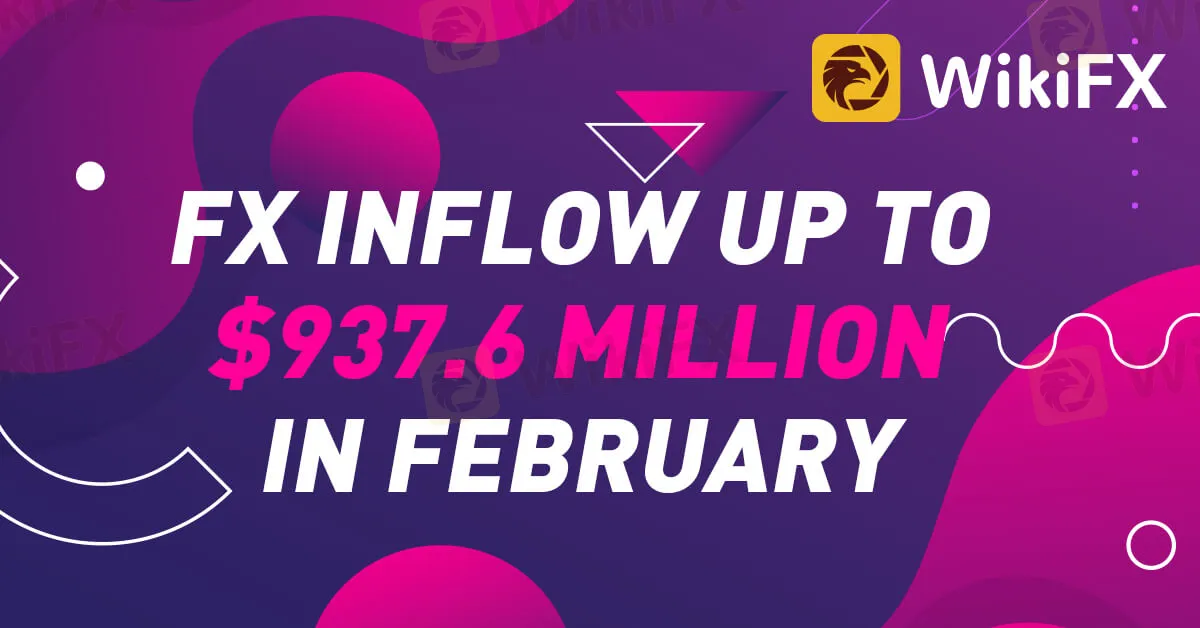简体中文
繁體中文
English
Pусский
日本語
ภาษาไทย
Tiếng Việt
Bahasa Indonesia
Español
हिन्दी
Filippiiniläinen
Français
Deutsch
Português
Türkçe
한국어
العربية
FX INFLOW UP TO $937.6 MILLION IN FEBRUARY
Abstract:The amount of foreign money that entered the Nigeria Autonomous Foreign Exchange market (NAFEX) increased by 10.7% to $937.6 million, despite a 1.14 percent decline in the 30-day moving average of Nigeria's external reserves.

The amount of foreign money that entered the Nigeria Autonomous Foreign Exchange market (NAFEX) increased by 10.7% to $937.6 million, despite a 1.14 percent decline in the 30-day moving average of Nigeria's external reserves.
The 30-days moving average of the external reserves decreased by $421.14 million to $36.648 billion as of March 2, 2023, from $37.069 billion on January 2, 2023.
Data collected in contrast to the $847.20 million reported in January of this year, the total dollar inflows into the NAFEX, also known as the Investors & Exporters Window (IEW), climbed by 10.7% month over month in February.
Higher inflows from both domestic and international sources were the cause of the rise. Domestic sources, which made up 87.1% of all inflows, increased by 11.4% to $816.9 million, while international sources, which made up 12.9% of inflows, increased by 5.9% to $120.7 million.
Analysts at Cordros Research noted that foreign inflows remain significantly below pre-pandemic levels of $1.56 million monthly average reported in 2019. This is because of constraints on forex liquidity, an overvalued currency, and a bad macro story. As domestic investors purchased more equities than they sold for the first time in seven months, foreign participation in the stock market remained low. Foreign investors net sold Nigerian stocks due to ongoing limitations on foreign exchange liquidity, upcoming election uncertainties, and increasing global interest rates.
The experts predict that the short- to medium-term currency liquidity situation will continue unstable in initiatives that would promote dollar inflows into the economy. The continuing global uncertainty and higher global interest rates, which restrict foreign inflows to the economy, contributing causes to the bad currency liquidity conditions. International investors take convincing measures in order to clarify in the future FX regime.
We predict that forex liquidity problems will persist for the foreseeable future because there are no increase in pre-pandemic levels. The medium- to long-term preservation of currency liquidity levels will also depend on FPIs, who have historically maintained supply levels in the IEW, given the slow building of result of output and high PMS under-recovery costs.
The supply and demand dynamics from the previous week were still putting pressure on the foreign exchange market. The naira increased by 4 Naira, or 0.53 percent, week over week to end at N758 to the dollar from N762 the prior week, while it barely fell by 0.13 percent, ending at N461.75 to the dollar from N461.17 to the dollar.
The final spot exchange rate for the 1-Month, 2-Month, 3-Month, 6-Month, and 12-Month tenor contracts on the Interbank Foreign Currency Future Contracts market was N462 to $1. This resulted in contract offer prices of N467.20, N476.27, N486.10, N512.13, and N543.35 being reached. the increased against the dollar by 3.76, 1.54, 1.14, 2.59, and 5.00 percent, respectively, week over week.
With the local currency market's the Supreme Court's recent decision on Friday making the old banknotes legal tender until December 31, 2023, analysts at Cowry Assets Management predict that the pressure on the naira's demand will continue unabated. To monitor currency in circulation and the money supply, the apex has decided to gradually remove the old banknotes from the system, thus it is quite doubtful that it will comment on the court's ruling.

Disclaimer:
The views in this article only represent the author's personal views, and do not constitute investment advice on this platform. This platform does not guarantee the accuracy, completeness and timeliness of the information in the article, and will not be liable for any loss caused by the use of or reliance on the information in the article.
Read more

Justice Served: Illegal Investment Scheme Ends in RM28 Million Repayment
The Kuala Lumpur High Court has ruled that a Singaporean businessman, Chan Cheh Shin, must return RM28 million to 122 Malaysian investors after the court determined that his investment operations were conducted illegally.

Tokyo Police Arrest 4 for Unregistered FX Trading Scheme
Four men in Tokyo were arrested for running an unregistered FX trading operation, collecting over ¥1.6 billion from 1,500 investors.

Doo Group Expands Its Operations with CySEC License
Doo Financial, part of Doo Group, receives a CySEC license, allowing FX/CFD services in Europe. This strengthens its global presence and regulatory standards.

Exness: Revolutionizing Trading with Cutting-Edge Platforms
Exness offers traders seamless experiences with its Exness Terminal and Exness Trade app, providing flexibility, advanced tools, and low-cost trading.
WikiFX Broker
Latest News
BSP Shuts Down Uno Forex Over Serious AML Violations
ACY Securities Expands Global Footprint with South Africa Acquisition
Tokyo Police Arrest 4 for Unregistered FX Trading Scheme
Rupee gains against Euro
Axi Bids AUD 52M to Acquire Low-Cost Broker SelfWealth, Outbidding Competitor Bell Financial
Crypto Influencer's Body Found Months After Kidnapping
US Regulators Tighten Oversight on Bank Anti-Money Laundering Efforts
Doo Group Expands Its Operations with CySEC License
RM900,000 Scammed: The Hidden Dangers of Online Investment Schemes
5 Advantages of Choosing a Regulated Broker
Currency Calculator


